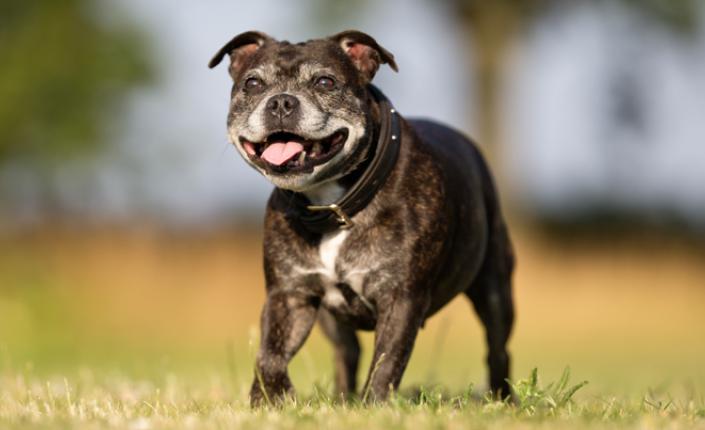
Aging Gracefully: Transitioning Your Pet Into Their Senior Years
As your pet ages, it can be difficult to see your once energetic pup begin to slow down or your formerly frisky feline begin to lose their playful spark. Luckily, adjustments can be made so that your pet can make the most out of their senior years and live life to the fullest. When it comes to living with a senior pet, you don’t need to make drastic changes to your lifestyle (or theirs).
Here are some examples of simple gestures that can help make your pet’s transition into their golden years as smooth as possible.
Become Your Vet’s BFF
For senior pets, it’s recommended that you visit the veterinarian’s office every six months. Regular check-ups can help identify any underlying illnesses and diseases. Early detection of diseases may be the key to more effective treatment.
Meal Plan Makeover
Choose a diet that is specifically formulated for senior pets. Factors like age, lifestyle, obesity, mobility issues, and even diseases like heart or kidney disease can have an impact on your pet’s diet. Speak with your vet to create a meal plan that best supports your senior pet’s health.
Keep the Mind Sharp
Food puzzles are a great way to keep your dog’s mind active in their golden years. For pets that are still puppies and kitties at heart, keep lots of toys on hand for playtime!
If you become concerned by a change in your older pet’s mental state, talk to your vet as early as soon as possible. An underlying medical condition could be the reason they aren’t acting like themselves.
Stay Active
If your dog has always enjoyed an active lifestyle, you can continue exercising with them well into their senior years. Just keep in mind that their age may mean that they’re quite a bit slower than they were as a young pup. Be conscious of your dog’s limitations (for example: mobility issues) and tailor your exercise routine to their needs. If your pet seems tired at any point, stop and don’t push them any further.
If your pet has never been one for exercise, ask your vet for suggestions first. Take it slow to start and gradually increase the intensity of the workouts as time goes on. Again, your vet is a great resource for helping you determine the amount and types of exercises that are right for your aging pet!
Look Good, Feel Good
Senior cats still care about their hygiene even if they have trouble doing it themselves. Lend a hand by gently brushing their coat to prevent uncomfortable matted hair.
Don’t forget to pay attention to your pet’s teeth. Dental disease makes eating painful which can lead to an unhealthy weight loss. To prevent this, treat their pearly whites to a good brushing or invest in dental treats and chew toys.
Home Improvements
Give your pet’s corner of the home an upgrade! Ease sore, arthritic joints with softer bedding and cover hard surfaces where they’re likely to lie down with blankets. Although many senior pets will begin to avoid using stairs, some may still use them out of necessity. If that’s the case, determine whether you can use ramps or pet stairs to aid their navigation.
Speaking of navigation, make sure that your pet’s necessities like food and water can be easily accessed. After all, you don’t want older cats to hurt themselves by trying to reach for their litter box! Consider placing litter boxes, food, and water bowls on every floor of your home for easy access.
The key to helping your pet age gracefully is a little TLC! Sometimes all it takes to make your pet feel special is some one-on-one time and extra attention. Wishing you many happy and healthy years with your furry family members!
